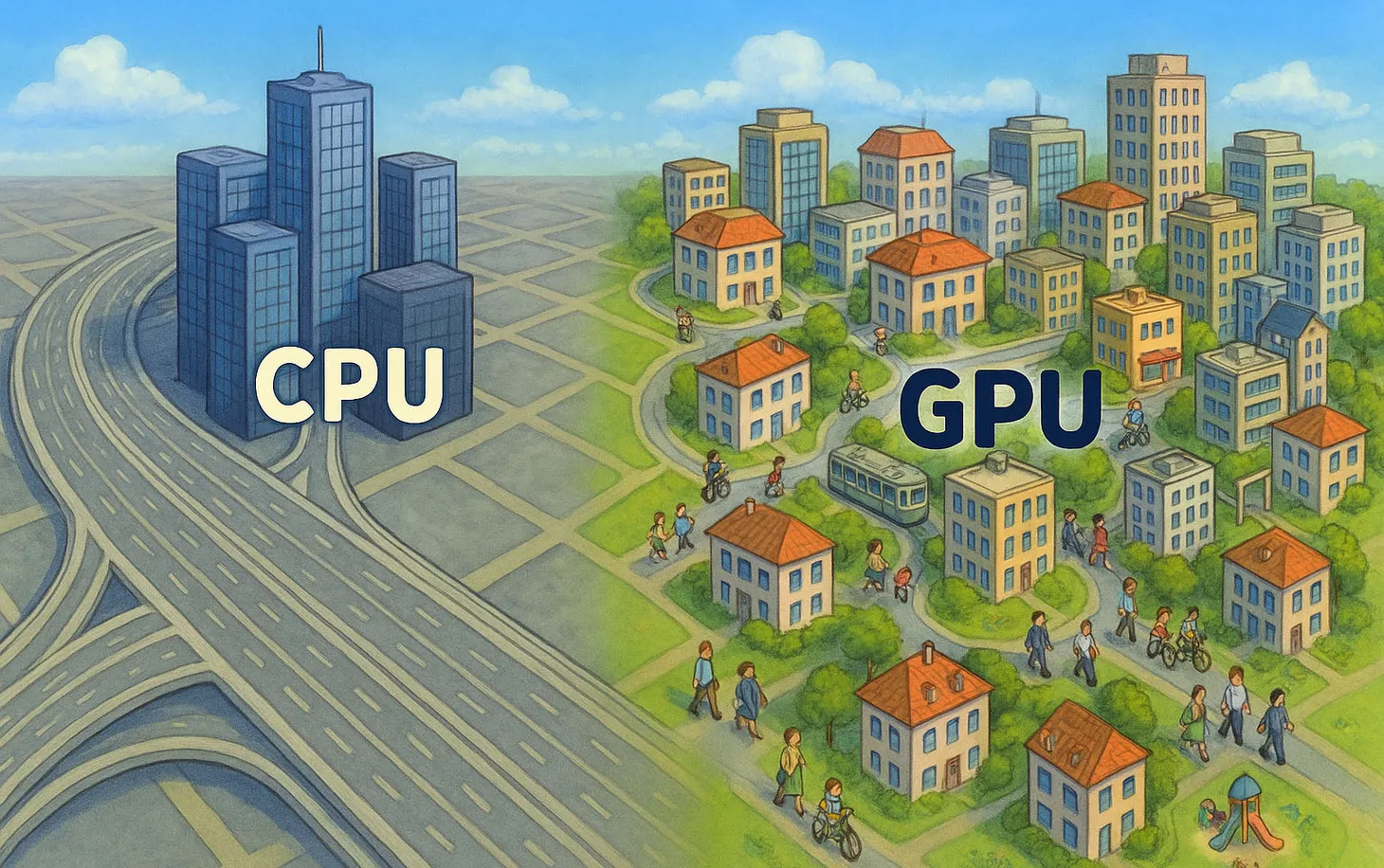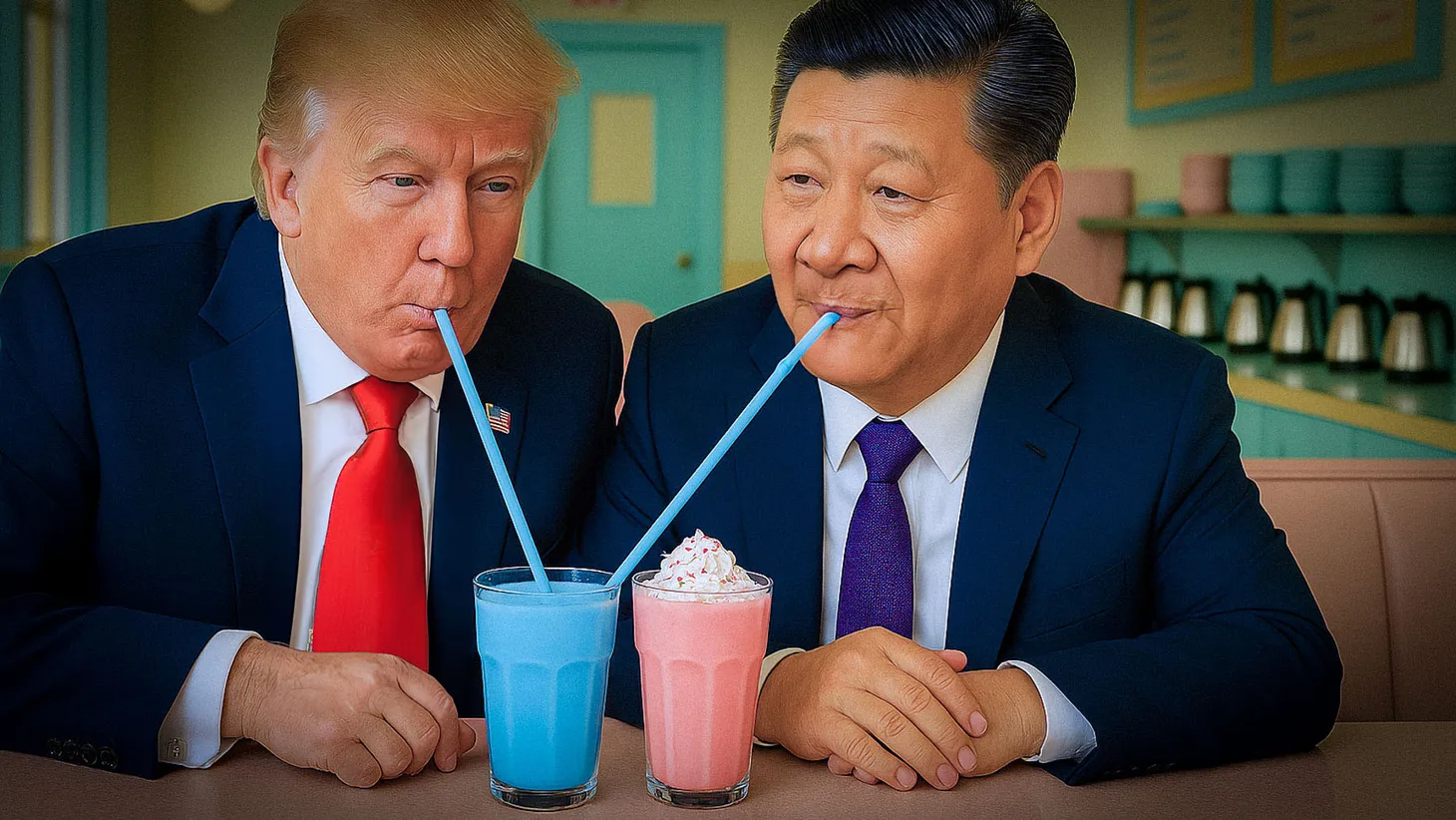The Winners and Losers of Distributed Work (Part 2)
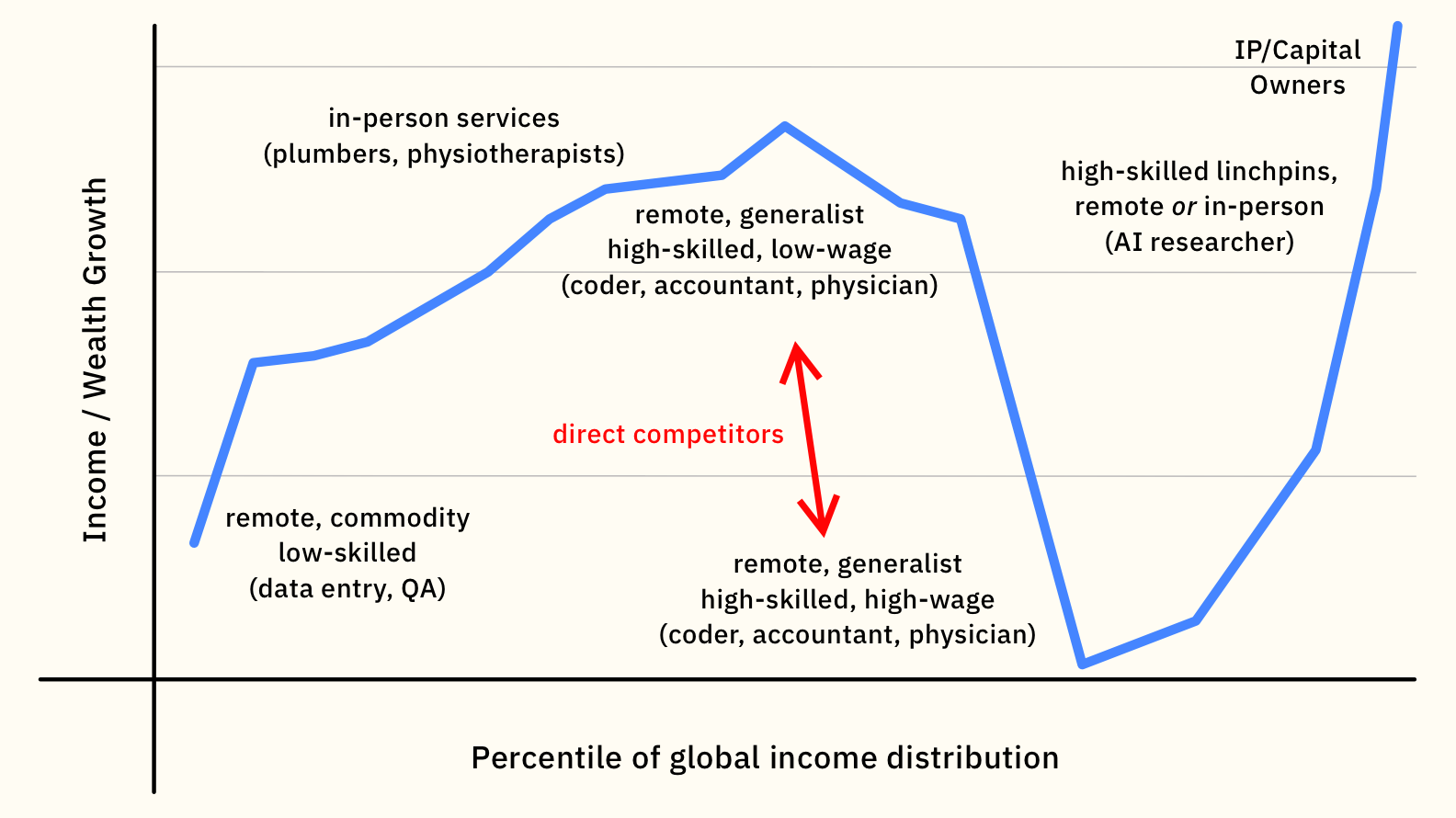
The Winners and Losers of Distributed Work (Part 2)
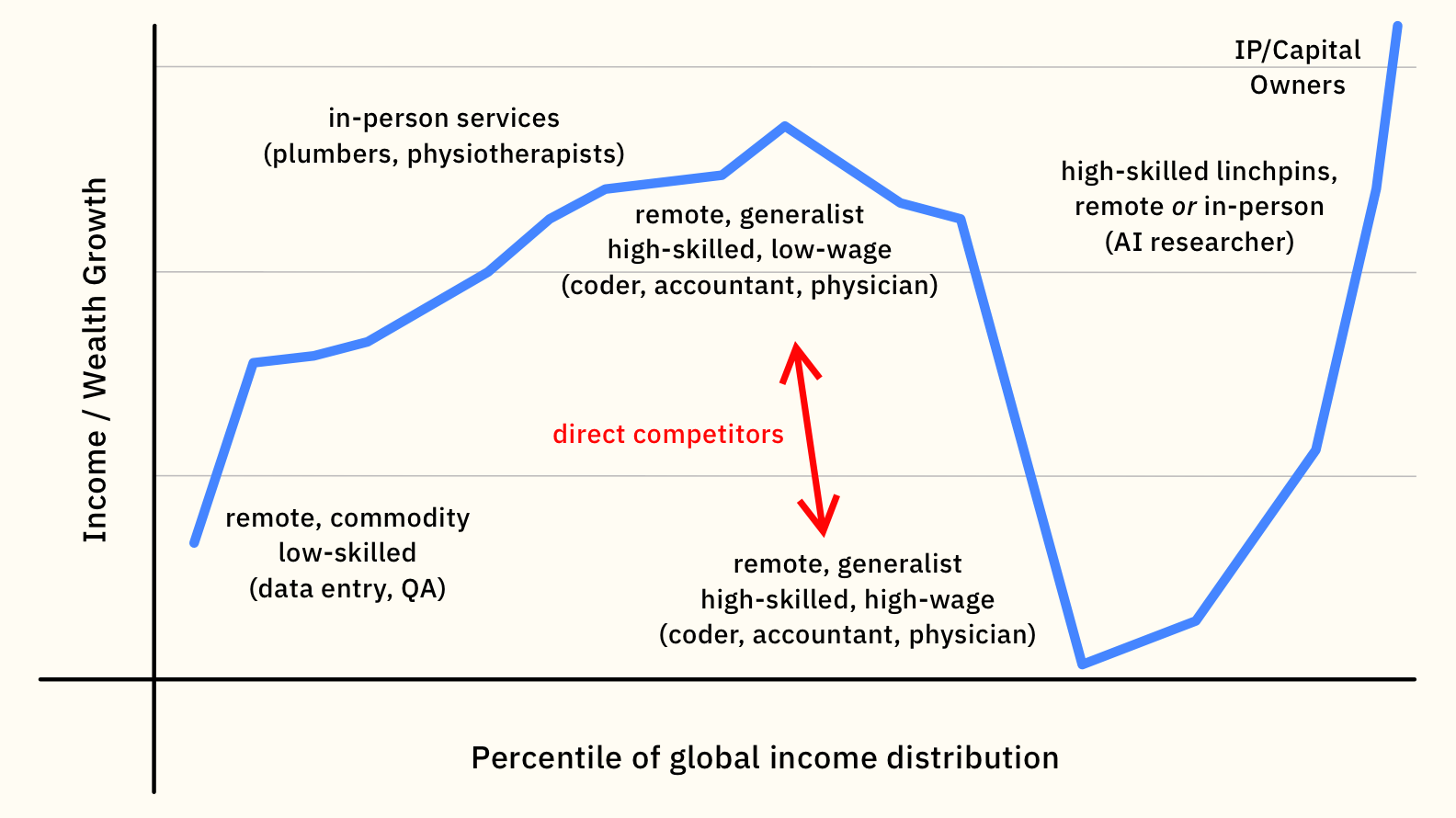
The original elephant chart reflected a world of globalized trade in goods — a world where most of the things we buy were made elsewhere (or if you live in a developing country, where most of the stuff you make is sold elsewhere). What would things look like once most of the services we consume were "made" elsewhere?
From a global perspective, they might look something like this.
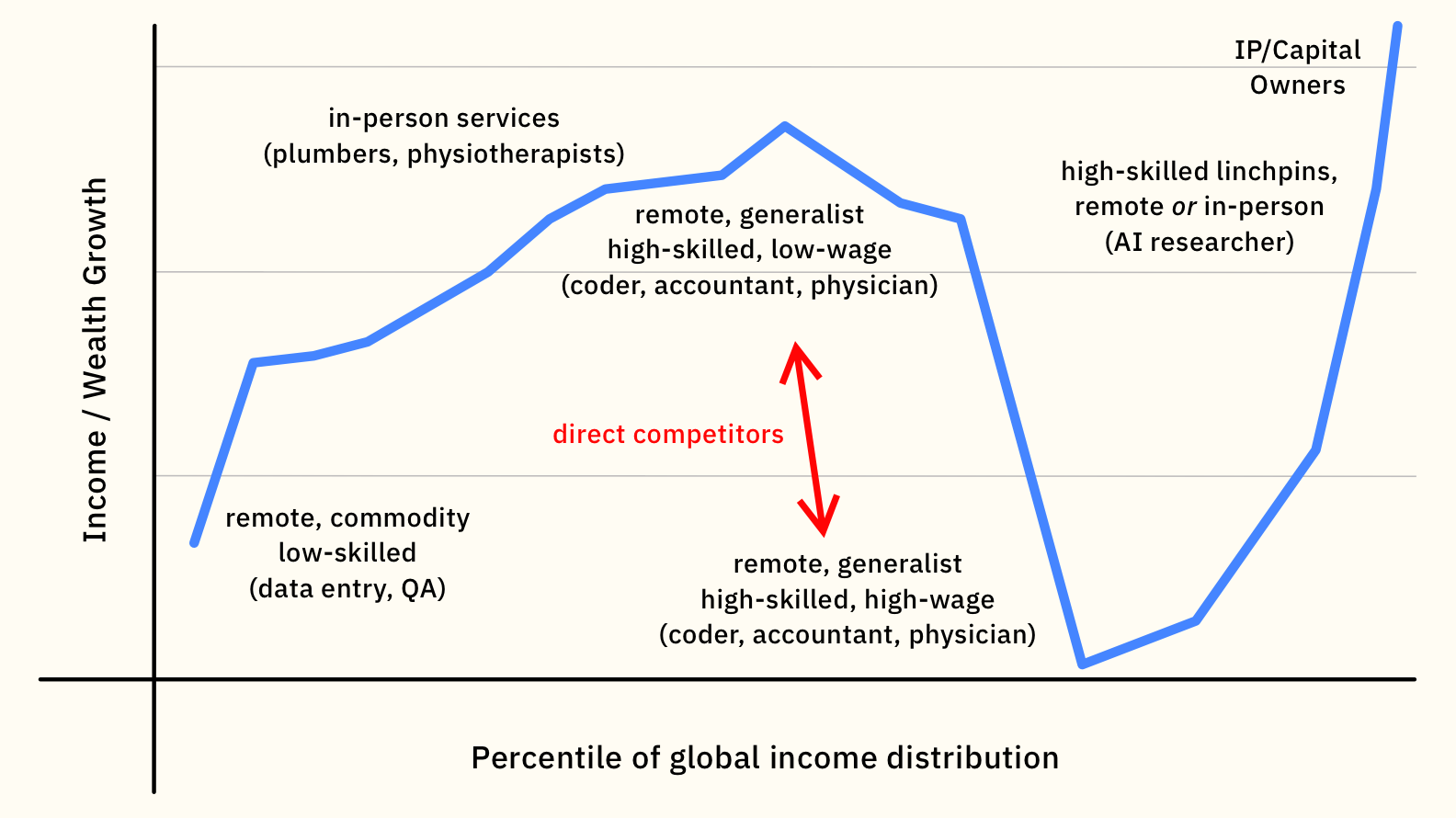
Let's start in the middle: A massive group of workers in low-wage countries could take up jobs that were previously performed on-site by better-paid employees. This new remote middle class would enjoy rapid income growth as more knowledge work is outsourced and redistributed. This growth will come at the expense of former office-dwellers in developed countries. These former office-dwellers will experience low or even negative income growth.
Providers of "commodity" services in all countries will be in direct competition. Note that "commodity" does not mean low-skill or low-value tasks; it refers to tasks that are clearly defined and relatively interchangeable. This includes plenty of software development and accounting, and it can even include medical advice.
Meanwhile, on the left end of the chart, there will be low-wage earners who cannot take advantage of the new opportunities presented by the expansion of global trade in services. These people will fall behind due to a lack of access to the internet or basic equipment, a lack of skills (including language), and other constraints.
And as in the previous era of globalization, the biggest winners will be on the right end of the chart. These are the small minority of people who will remain impervious to global competition or, more accurately, those who will benefit from global competition and experience rapid income growth.
In the era of globalized goods, these beneficiaries consisted mainly of the upper middle class and top percentiles of earners in developed countries who worked for — and owned shares in — the large multinational corporations that benefited from cheap labor and the opening up of new consumer and financial markets.
The winners of the globalized services era will share many similarities, but they will also have some unique traits. In the future, more of the world's highest earners will be individuals, as opposed to corporate employees. More of them will derive most of their annual income from owning intellectual property rather than active work. And the composition of the top percentile of global owners will become more diverse.
The nature of success itself will change as talent from around the world could compete directly for jobs and customers, and the traditional boundaries between the global economic core and periphery will lose their meaning. The gaps within the top 1% (or top 0.001%) will widen further, as technology enables the biggest winners to scale themselves like never before.
But while success will become bigger, it will also become more fleeting, and those at the top will be under constant threat and have limited ability to fend off new competitors. And as the global economy becomes more meritocratic on average, chance will play a bigger role in determining the biggest winners.
Next week, we'll beging to unpack each of these differences, and continue to explore their implications for cities, companies, and individual careers.
Best,

Dror Poleg Newsletter
Join the newsletter to receive the latest updates in your inbox.


